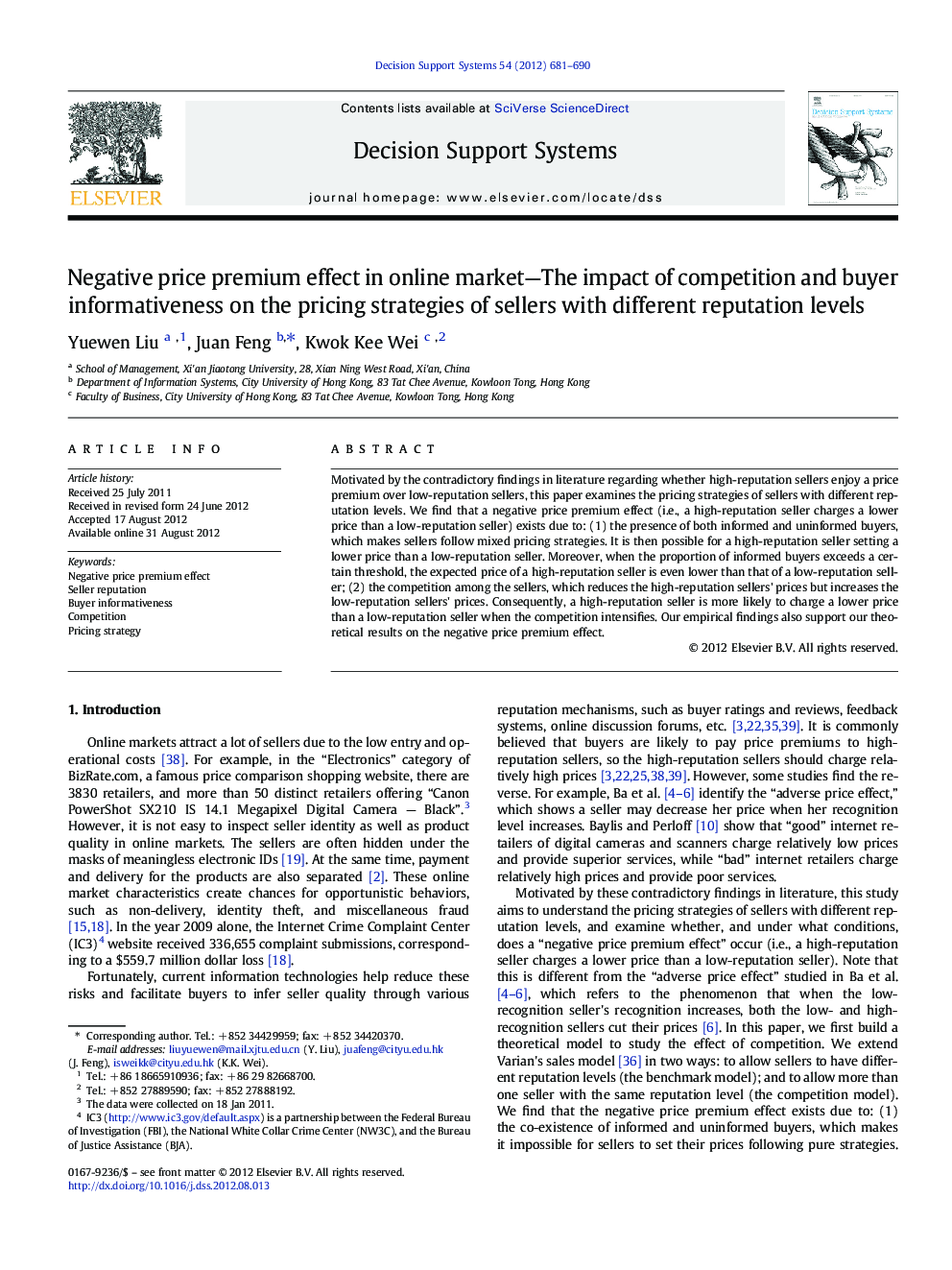| Article ID | Journal | Published Year | Pages | File Type |
|---|---|---|---|---|
| 552256 | Decision Support Systems | 2012 | 10 Pages |
Motivated by the contradictory findings in literature regarding whether high-reputation sellers enjoy a price premium over low-reputation sellers, this paper examines the pricing strategies of sellers with different reputation levels. We find that a negative price premium effect (i.e., a high-reputation seller charges a lower price than a low-reputation seller) exists due to: (1) the presence of both informed and uninformed buyers, which makes sellers follow mixed pricing strategies. It is then possible for a high-reputation seller setting a lower price than a low-reputation seller. Moreover, when the proportion of informed buyers exceeds a certain threshold, the expected price of a high-reputation seller is even lower than that of a low-reputation seller; (2) the competition among the sellers, which reduces the high-reputation sellers' prices but increases the low-reputation sellers' prices. Consequently, a high-reputation seller is more likely to charge a lower price than a low-reputation seller when the competition intensifies. Our empirical findings also support our theoretical results on the negative price premium effect.
► Buyer informativeness makes seller pricing follows a mixed strategy. ► A high-reputation seller’s average price may be lower than a low-reputation seller’s. ► The competition among the sellers may increase the low-reputation sellers’ prices. ► The negative price premium is more likely to happen when competition intensifies.
